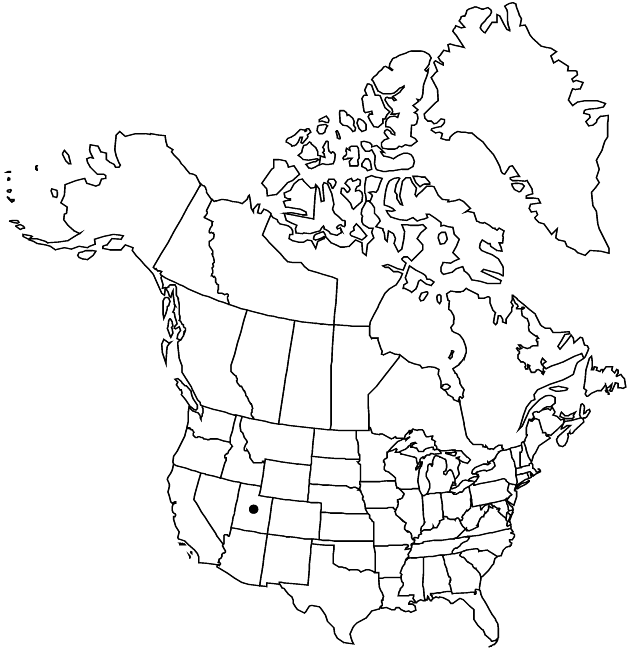Ericameria zionis
Phytologia 68: 153. 1990.
Plants 10–30 cm. Stems decumbent to ascending, green when young, often reddish tinged, soon reddish brown to brown, branched, twigs long-stipitate-glandular (sometimes with crinkly hairs interspersed). Leaves mostly erect or ascending; blades spatulate (flat), 25–40 × 2.5–7 mm, midnerves (plus 2 smaller, collateral nerves) evident, apices acuminate, faces long-stipitate-glandular; fascicles absent. Heads in (leafy) congested, paniculiform to cymiform arrays (1–4 cm wide). Peduncles 3–15 mm (long-stipitate-glandular, bracts 0–3, phyllary-like). Involucres turbinate to narrowly campanulate, 14–22 × 6–8 mm. Phyllaries 17–23 in 2–4 series, tan to green, lanceolate to elliptic, 10–14 × 1.6–2.7 mm, subequal (outer often slightly longer than inner), outer herbaceous or with herbaceous cusps, inner mostly chartaceous, midnerves (often plus 2 collateral nerves) evident, (margins villous distally) apices acute to acuminate, abaxial faces stipitate-glandular, inner sometimes glabrous. Ray florets 0. Disc florets 10–21; corollas 9.5–12 mm. Cypselae tan to reddish, ellipsoid, 7–8 mm, glabrous or apically hairy; pappi off-white to brown, sometimes reddish, 9–9.5 mm. 2n = 18 [as Haplopappus bloomeri subsp. compactus].
Phenology: Flowering summer–fall.
Habitat: Gravelly to sandy clay soils with manzanita, spruce, fir, and pine
Elevation: 2400–3100 m
Discussion
Of conservation concern.
Ericameria zionis is known from southern Utah.
Selected References
None.
